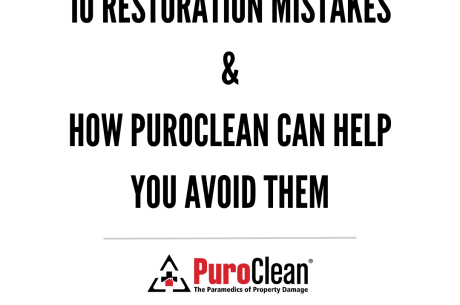Water damage can be one of the most devastating incidents a homeowner can face, and it’s a scenario many people worry about. From burst pipes to natural disasters, the question on many homeowners’ minds is: “Does homeowners insurance cover water damage?” Let’s delve into this topic to understand what is typically covered under homeowners insurance and what isn’t.
Understanding the Basics
Homeowners insurance policies vary, but in general, they’re designed to protect your home from unexpected or sudden damage, not damage due to wear and tear or lack of maintenance. When it comes to water damage, this distinction becomes critically important.
What’s Typically Covered
When considering “does homeowners insurance cover water damage” some instances that may be covered include the following:
Internal Water Damage: If a pipe bursts suddenly or your washing machine overflows, causing water damage, your policy will likely cover the repairs. This includes damage to flooring, walls, furniture, and other personal belongings.
Roof Leaks: Damage caused by a windstorm or hail that results in a roof leak might be covered. If water gets in because of the damage and ruins your ceiling or walls, the policy could cover the cost of repairs.
Accidental Overflow: If a child leaves a bathtub running or an appliance malfunctions, and it results in water damage, your policy might kick in to help with the repair costs.
What’s Typically NOT Covered
Flooding: This is a major point of confusion for many homeowners. A standard policy does not cover flooding from external sources, such as rising rivers, torrential rain, or storm surges. If you live in a flood-prone area, you’ll need a separate flood insurance policy.
Sewer Backups: If water backs up into your home from the sewer or drain, it’s not typically covered unless you have a specific sewer backup rider added to your policy.
Poor Maintenance: If you’ve ignored a small leak over the years, which eventually leads to significant damage, insurance will not cover the repairs. They expect homeowners to maintain their properties and address issues promptly.
Mitigation and Deductibles
Should water damage occur, your policy may also cover the cost of mitigation, meaning services that prevent further damage. For instance, if a pipe bursts and you need to hire a company to dry out the affected areas, this service might be covered.
However, remember the role of deductibles. Before your insurance pays out, you’ll be required to pay your deductible. If the damage costs are close to or less than your deductible, it might not be worthwhile to make a claim.

Tips for Homeowners
Regular Inspections: Regularly inspect your home, especially areas prone to water damage like the bathroom, kitchen, basement, and attic. This can help you catch potential problems before they escalate.
Know Your Policy: Familiarize yourself with your insurance policy. Understand what’s covered and what’s not. If you’re unsure, have a conversation with your insurance agent.
The Role of a Public Adjuster: AskAnAdjuster to the Rescue
Navigating the intricate nuances of homeowners insurance can be daunting for most people. While the basics might seem straightforward, the language can be difficult to interpret. This is where a public adjuster can be invaluable. A public adjuster is a licensed professional who specializes in insurance claims. They work on behalf of policyholders, not insurance companies, ensuring you get the maximum payout your policy allows to cover most or all of the work needed on your home or business.
Consider Additional Coverage: If you believe you’re at risk for certain types of water damage not covered by your standard policy, explore additional coverages. For instance, those living in flood zones should definitely consider getting flood insurance.
Document Everything: If you experience water damage, document everything with photos and descriptions. This will make the claims process smoother.
In Conclusion Does Homeowners Insurance Cover Water Damage?
While homeowners insurance does cover a wide range of water damage scenarios, it doesn’t cover everything and every policy is unique and different. We at PuroClean of New Port Richey hope we have given you answers to the question “Does homeowners insurance cover water damage” or some steps to take to make sure you are covered in the case of emergency water damage. The key is understanding the specifics of your policy and taking preventive measures to reduce the risk of water damage. By staying informed and proactive, you can ensure that your home remains a safe and valuable asset for years to come. If you have water damage that is not covered we have you protected as well by offering competitive rate financing on our emergency restoration services.



